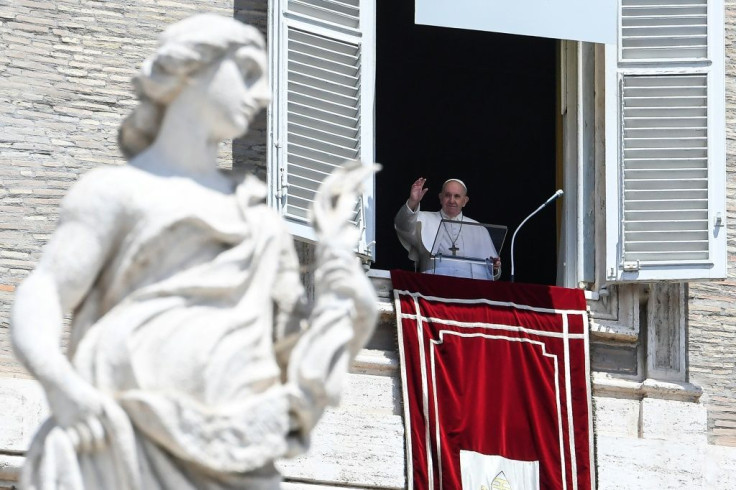Battered By Covid-19, Italy’s Economy May Shrink By 8.3% This Year

KEY POINTS
- ISTAT, predicted a 7.2% drop in domestic demand net of inventories
- ISTAT also said it expects the economy to rebound by 4.6% next year
- ISTAT also projected an average unemployment rate of 9.6% this year
The Italian economy, battered by the covid-19 pandemic, is expected to contract by 8.3% this year, according to government projections, largely due to the debilitating impact of a two month nationwide lockdown designed to curb the spread of the virus.
Along with the plunge in gross domestic product, the Italian National Institute of Statistics, or ISTAT, predicted a 7.2% drop in domestic demand net of inventories, and an 8.7% decline in household spending.
(In December, prior to the pandemic, ISTAT forecast the economy would gain 0.6% in 2020.)
ISTAT also said it expects the economy to rebound by 4.6% next year.
ISTAT also projected an average unemployment rate of 9.6% this year – which is actually lower than its December projection of 9.9%. That decline is accounted for by the phenomenon of people who have stopped looking for work.
In April alone, some 274,000 jobs vanished.
ISTAT, citing that the Italian economy was already stagnating at the end of 2019, saw conditions worsen at the end of February as the COVID-19 led to a national lockdown that halted virtually the entire economy, shutting down exports.
ISTAT cautioned that its economic forecasts are preliminary – subject to revisions -- given the “high uncertainty” surrounding the unprecedented pandemic. Among other factors, the institute assumes a second wave of the virus will not emerge.
ISTAT’s overall forecast is actually more optimistic than other sources -- the Bank of Italy predicted the economy will plunge by between 9.2% and 13.1% this year, while the European Commission projected a 9.5% tumble, and Goldman Sachs sees an even worse 14% contraction.
Italy has been particularly hard hit by the pandemic -- the virus has killed nearly 34,000 people, the fourth highest total in the world.
Despite the grim economic prognostications, Italian Prime Minister Giuseppe Conte is now in a stronger position as many voices have praised his handling of the crisis as Italy emerges from the lengthy lockdown.
"Conte's management of the crisis has been broadly appreciated," said Alessandro Giacone, political history lecturer at the University of Bologna.
A poll by the Ixe agency recently revealed that 59% of Italians have a favorable view of Conte, who frequently uses Facebook to communicate directly with the public.
"Conte isn't seen as being a traditional politician but rather as a free agent who provides information in an independent way," said Gianfranco Pasquino, a political science lecturer at Bologna's Johns Hopkins University.
Conte was praised for speaking clearly and bluntly about the effects of the pandemic, but was also criticized by some Italians for shutting down the country – the euro zone’s third largest economy – for too long.
"He dealt very well with some aspects of the crisis, less well with others," said Vincenzo Galasso of Milan's Bocconi University.
Conte was named prime minister in June 2018 as a complete unknown. He was a law lecturer who had no political experience, and became widely disparaged for allegedly serving as a puppet for his two deputy prime ministers, Luigi Di Maio of the Five Star Movement, or M5S, and Matteo Salvini, head of the far-right Northern League.
However, in September 2019 Conte formed a coalition government between the M5S and the center-left Democratic Party.
Conte also played a key part in developing the 750-billion-euro ($847 billion) European stimulus package last month.
Conte "strengthened his position, he has much more room for maneuver, without deputy prime ministers impeding him,” added Giacone. "During the [coronavirus] crisis, government measures became centralized, with the prime minister emerging at the fore of the political stage… at the end of the day, the results [of the lockdown] have been more or less similar to those in most big European countries, and so Italy's own image has improved.”
Galasso warned however that as Italy confronts its worst recession since World War II, Conte’s honeymoon period may be over.
"The employment market was hit hard and in a very unequal way because it mostly affected unskilled workers, those who could not work from home," he said. "It's not yet entirely visible, but this is a potential time bomb."
In addition, Italy’s government debt is skyrocketing – it could hit 159% of GDP this year, the highest such level ever recorded.
© Copyright IBTimes 2024. All rights reserved.





















